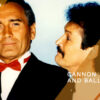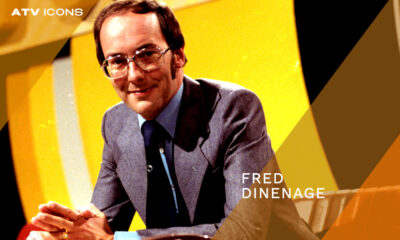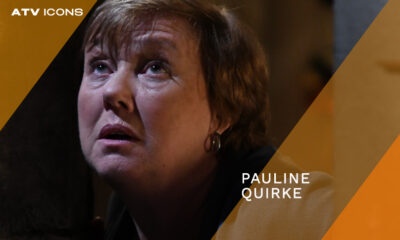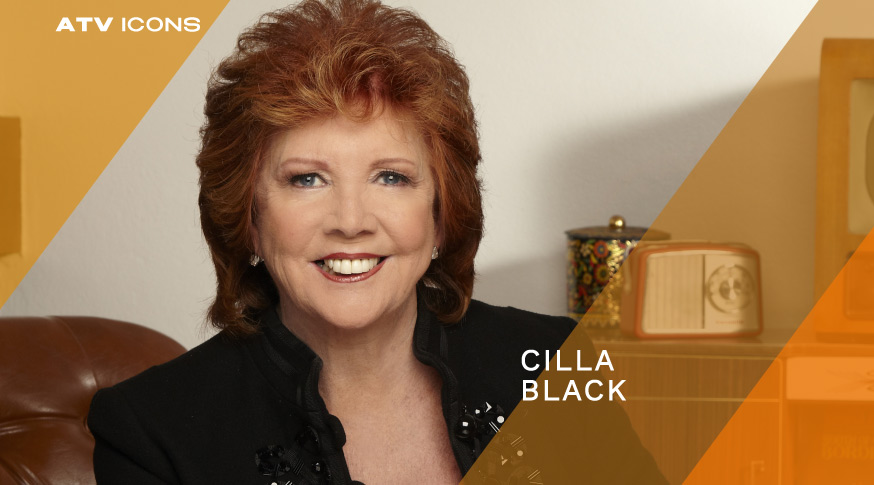
Icons
ATV Icon: Cilla Black
The next star to be celebrated to mark ITV’s 70th anniversary is Cilla Black…
Cilla Black, born Priscilla Maria Veronica White, singer-turned-television presenter, whose 50-year career took her from 1960s pop stardom to beloved “TV royalty” is best remembered for her long running series’ on ITV – as well as her pop stardom.
Rising to fame with a string of chart hits in the Swinging Sixties, she later became one of Britain’s most popular ITV hosts, known for her warm personality, Scouse charm, and signature catchphrases.
Born in Liverpool on 27 May 1943, Priscilla White grew up in a working-class family – her father was a dockworker and her mother ran a market stall. As a teenager in the city’s vibrant club scene, she knew she wanted to be famous. She worked as a cloakroom girl at the Cavern Club the epicentre of the Merseybeat movement. Young Cilla and even served coffee at a local hangout, placing herself among rising stars. A happy accident gave her the stage name “Cilla Black” when a local music paper mistakenly printed her surname as Black instead of White – a name she liked and decided to keep it.
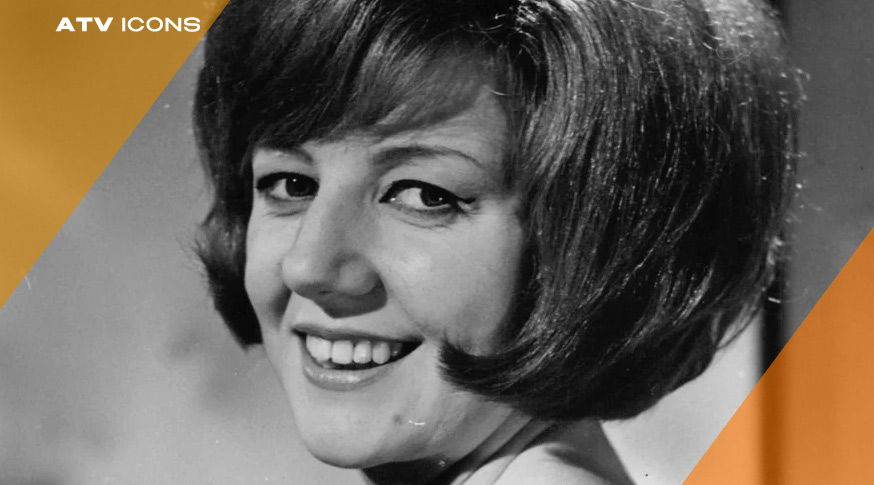
Cilla Black on ‘Thank Your Lucky Stars / Alpha TV/ABC
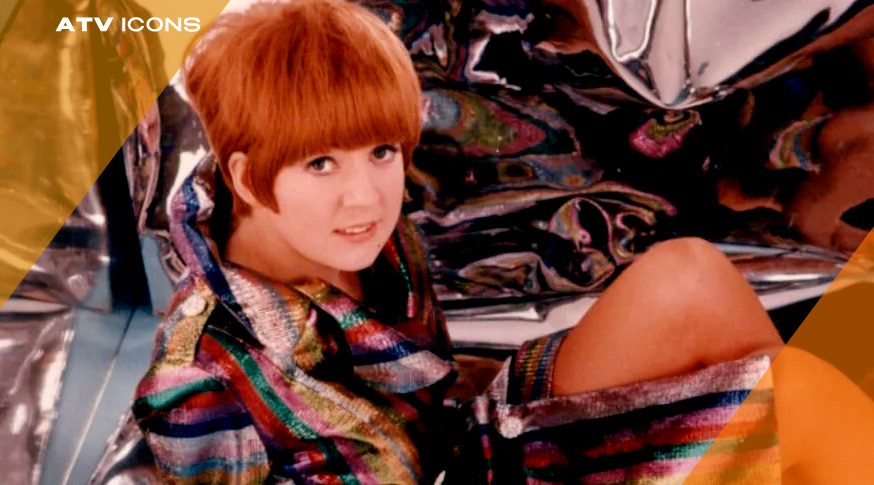
Cilla Black, EMI Records PR handout
Cilla’s break into music came with help from friends in high places. A young John Lennon championed her talents, introducing her to Beatles’ manager Brian Epstein, who signed Cilla as his only female client in 1963. That year she debuted on the UK charts with “Love of the Loved,” but it was her 1964 single “Anyone Who Had a Heart” (a cover of a Dionne Warwick song) that shot her to superstardom – it became the best-selling record by a female artist in 1960s Britain.
She followed with another No.1 hit, “You’re My World,” making her the first British female to have two successive #1 singles in the UK. Between 1964 and 1971, Black amassed 11 Top 10 hits, and 19 Top 40 hits in total, on the UK charts. Her powerful voice and girl-next-door appeal made her a regular presence on radio, TV variety shows and in live tours during the mid-60s, firmly establishing her as one of the decade’s new pop icons.
While music was her first showbiz love “I prefer to be known as a singer… that’s all I’ve ever, ever wanted to do,” she once said, Cilla’s recording success also opened the door to other avenues. By the late 1960s – with guidance from Epstein – she began transitioning to television, a move that would define the second half of her career.
In 1968, Cilla Black made a groundbreaking TV debut with her own BBC variety program, simply titled Cilla. This made her the first woman to host a primetime variety show on BBC One. The series blended musical performances, comedy skits, and guest stars, providing Cilla a platform to showcase both her singing and her irrepressible personality. In fact, on the very first episode of Cilla she welcomed fellow pop sensation Tom Jones as a guest – the two duetted to kick off what would become a hugely popular series.
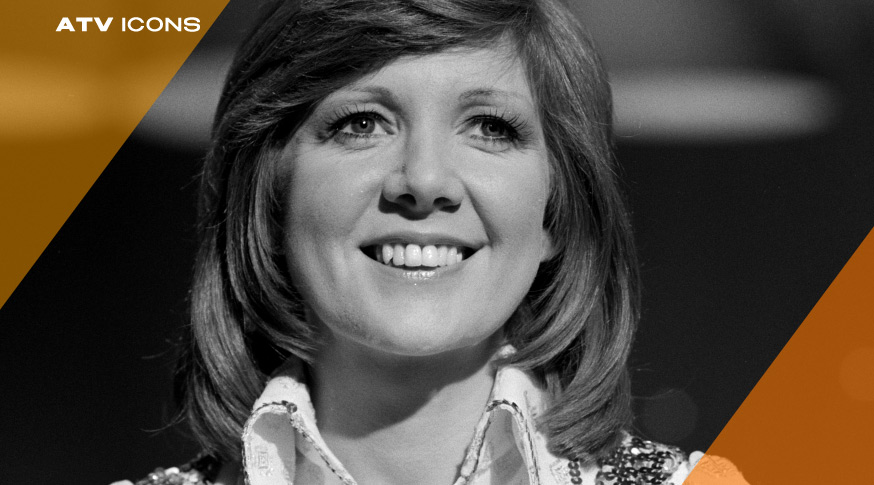
Cilla appears on The Burt Bacharach Show / ATV Elstree
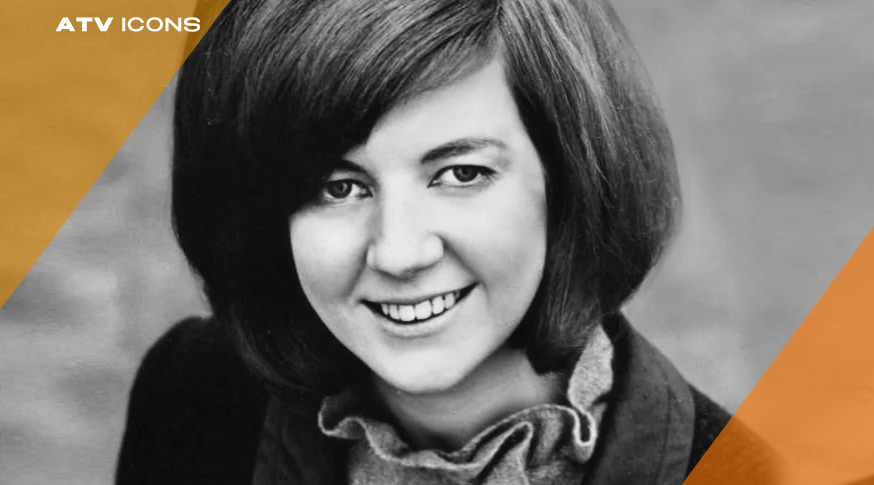
60s pop star, Cilla / EMI Records PR handout
Her Beeb series ran from 1968 to 1976 and was a ratings hit, regularly drawing enormous audiences – some episodes attracted as many as 22 million viewers. Viewers tuned in not just for the music but for Cilla’s lively rapport with her guests and the audience. The show’s theme song, “Step Inside Love,” was even written by Paul McCartney for Cilla to sing – showing her close ties to the era’s pop royalty.
After as her Beeb series was coming to an end, Cilla attempted a foray into sitcoms and comedy acting joining ATV for two six-part showcases; Cilla’s Comedy Six and Cilla’s World of Comedy though she later admitted she ‘wasn’t really a very good actress’. However, the first series saw her win the “Top Female Comedy Star” gong from the Writer’s Guild of Great Britain.
During this period, her television profile dimmed somewhat. She spent more time off-screen focusing on live performances in cabaret and pantomime allowing her more time to spend with her young family. By the early 1980s, it might have seemed to some that Cilla’s telly career had quietly run its course. But an unexpected comeback was just around the corner.
Cilla Black’s return to the top of TV came thanks to her genuine charm shining through in an unscripted moment. In 1983, she appeared as a guest on BBC’s Wogan talk show to promote a new music compilation. Her effervescent chat – peppered with name-dropping nostalgic stories and a down-to-earth joke about being thrilled to have a hotel room telephone but having no one to call back home – reminded television producers how well she connected with audiences. The appearance reignited interest in Cilla as a broadcaster, leading ITV company London Weekend Television to offer her a Christmas special. It proved a success and the following year LWT committed to a new series for Black.
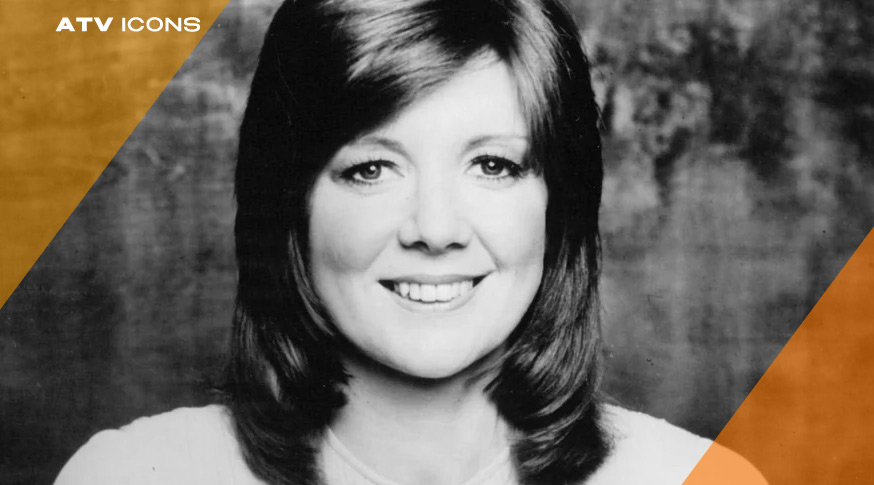
During the seventies Cilla’s BBC variety show was a ratings hit / TBI PR

While forging her telly career Cilla continued to release music / TBI PR
In 1984, she debuted as host of Surprise Surprise, a sentimental light-entertainment format in which Cilla helped “make people’s dreams come true” through surprise reunions, wish-fulfilments and heartwarming pranks. Each episode featured ordinary people being surprised with long-lost family members or special opportunities, often moving Cilla to tears of joy. She handled these emotional moments with warmth and a touch of fun. The series would run for 17 years on ITV, but it wasn’t ‘our Cilla’s’ most famous telly series from London Weekend.
Just one year after Surprise Surprise began, Cilla took on a second prime-time hosting role – this time adding a mischievous matchmaking twist to her persona. In 1985 she launched Blind Date, a Saturday night dating game show.
On Blind Date, Cilla played the role of a mothering Cupid: each week a bachelor or bachelorette would quiz three unseen contestants and choose one for a date, with Cilla mediating the banter. She made the programme her own with playful innuendo and caring asides, becoming “Queen Matchmaker” of British TV. Many viewers barely remembered (or believed) that she had once been a 1960s pop singer – to a generation of fans, she was simply “Cilla from Blind Date,” with her big grin, permed red hair, and hearty laugh.
Blind Date quickly became must-see family viewing on Saturday nights. Audiences would finish Gladiators and then settle in for Cilla’s show. At its peak in the late 1980s it drew around 18 million viewers every week. Cilla hosted Blind Date for 18 years, presiding over 380 episodes until 2003, and helped create at least a few real-life love stories and marriages.
On camera, Cilla’s presenting style in these shows was a winning mix of affectionate and cheeky. On Surprise Surprise she might shed a genuine tear with participants, while on Blind Date she was quick with a witty “pithy put-down” if a contestant’s joke fell flat.

Surprise! Surprise! relaunched Cilla on ITV / LWT
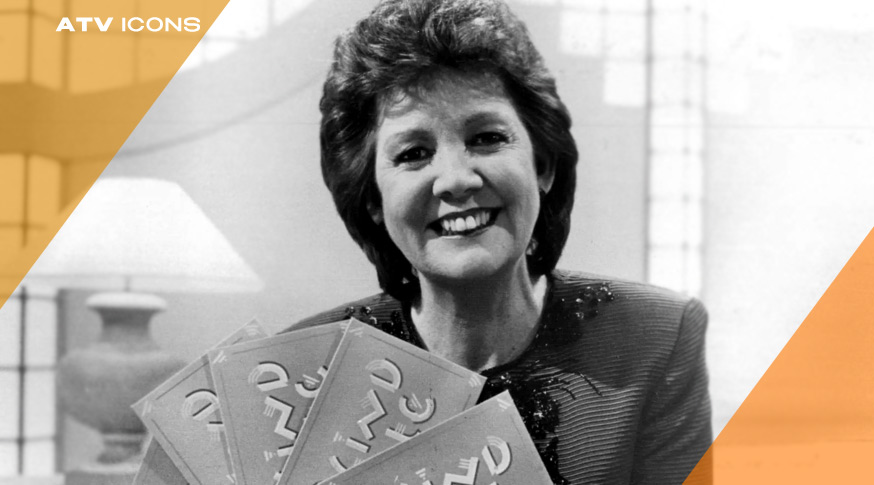
Cilla Black oversees Blind Date / LWT
Her arsenal of catchphrases became iconic. On Blind Date she’d always begin by chirping to contestants: “What’s your name and where d’yer come from?”. If a couple hit it off, she’d joke, “Do I need to buy a new hat?” – teasing that she might soon attend their wedding. And of course, there was her signature sign-off borrowed from her Liverpool roots: “Ta-ra, now…” often preceded by a promise of “a lorra, lorra laughs” next time. That catchphrase – spoken in Cilla’s bright Scouse accent became so linked to her that it entered the pop culture lexicon of Britain.
Behind the scenes, Cilla took her hosting duties seriously. A famous anecdote from Blind Date illustrates her no-nonsense streak beneath the bubbly exterior. In 1997, a magazine journalist managed to sneak onto the show as a fake contestant. When this ruse was uncovered on air, Cilla didn’t take it lightly – she glared at the culprit and scolded, “You’ve robbed someone of coming on a proper blind date,” then prompted the studio audience to boo the offender. The moment showed that she fiercely protected the integrity of her show and its genuine contestants.
Cilla Black’s popularity on television owed much to her relatable “girl next door” appeal and her natural comedic instincts; she came across as down-to-earth and approachable – “a friend in your living room,” as one TV executive once noted. Fans and media often affectionately called her ‘our Cilla’ suggesting a national sense of personal ownership and endearment. This moniker hints at how beloved she was: viewers felt they knew Cilla, and she in turn cultivated an image of someone who never forgot her humble roots even as she became a star.
Interestingly, beneath the bubbly persona was a certain hard-nosed savvy and matriarchal authority. Colleagues noted that Cilla, while lovable, “had an edge – you would not want to mess with her”. The press at times even compared her to Margaret Thatcher in the 1980s, dubbing Cilla a “showbiz Thatcher” due to her tough, no-nonsense vibe. It was said that ITV producers originally chose Cilla to host Blind Date specifically because her wholesome, almost asexual persona could get a flirty dating show past nervous regulators – she jokingly recalled being picked as “the most sexless person on television” to tone down the innuendo. Far from taking offense, Cilla understood the humour in that and leaned into the role of the cheeky-but-proper chaperone.
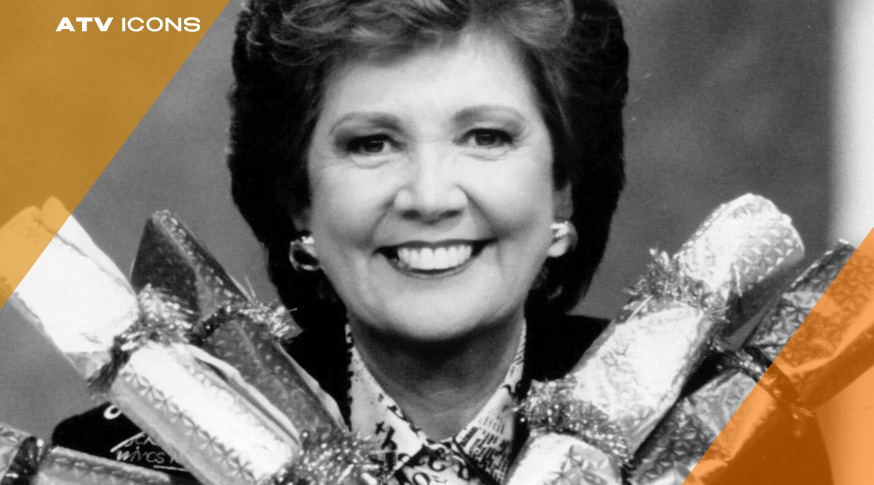
Cilla said ‘Goodbye to the 80s’ on ITV with a New Year’s Eve special in 1989 / LWT

Time for talk, Cilla hosts her own chat show Cilla’s World / LWT
As a pioneering woman in a field then dominated by men, Cilla Black stood out. She wasn’t a glamour girl vamping it up for the cameras, but rather a motherly figure who could hold an audience’s attention with sheer force of personality.
Despite her trailblazing role, Cilla herself did not overtly frame her career in feminist terms – she was simply confident she could succeed. “Do you think it’s a myth that women can have it all?” a BBC interviewer asked her in 2014. Cilla replied with typical forthrightness: “Well, I did it, didn’t I? I have it all. I’m living proof… I didn’t even know I was a feminist. I was the top of the bill… I’ve always been the top of the bill. So, I don’t know what equality is.” She had become a top star at a time when few women reached such heights in entertainment – and by excelling, she inadvertently helped redefine what was possible, all while just being herself.
By the early 2000s Black decided to step back from her regular hosting duties, making occasional returns hosting television specials for Living TV and Sky One as well as a semi-regular panellist on Loose Women for a period of time.
As part of ITV’s 50th anniversary celebrations the British public voted her one of the UK’s 50 greatest TV stars of all time, she ranked #36 in the ITV poll. In 2013, to celebrate her 50 years in showbusiness, ITV produced a primetime tribute The One and Only Cilla Black, featuring Cilla herself alongside celebrity friends looking back on her career. The next year, 2014, brought two special honours: Cilla was given a BAFTA Special Award for her contributions to television, and her early life was introduced to a new generation through a hit ITV drama series Cilla, starring Sheridan Smith as the young Cilla Black. Cilla, ever modest, seemed genuinely thrilled and a bit surprised by all the fuss.

New adventures, Cilla Black joins Living TV / Living TV

Cilla in a promo for Living TV / Living TV
In addition to popular acclaim, Cilla received formal recognition. She had been appointed an OBE back in 1997 for her services to entertainment. She also accumulated numerous industry awards and honorary titles over the years.
Despite decades in the limelight, Cilla Black managed to keep much of her private life relatively private, often described as a grounded, family-oriented woman behind the scenes. In her mid-20s, at the height of her early fame, Cilla married her boyfriend and manager Bobby Willis. The wedding took place at Marylebone Registery Office in London in 1969, a union that famously crossed religious lines – she was Catholic, he was Protestant – at a time it raised some eyebrows. By all accounts, the marriage was a happy and stable one: Bobby was her rock and business partner, and Cilla frequently credited him for his guidance. They remained married for 30 years until Bobby’s untimely death from cancer in 1999.
The couple had four children together. Their eldest son, Robert, was born in 1970, followed by Ben (1974) and Jack (1980). Cilla also gave birth to a daughter, Ellen, in 1975, but tragically the baby girl was born prematurely and survived only a couple of hours. The loss of baby Ellen was a profound sadness in Cilla’s life. “I often think what Ellen would have been like,” she reflected years later. Cilla’s candour about this heartbreak – and about the challenges of balancing motherhood with showbiz – earned her much public sympathy.
Friends described Cilla as loyal, fun-loving, and unpretentious in private. She maintained long-standing friendships with fellow entertainers such as Frankie Howerd, Cliff Richard, Christopher Biggins, Paul O’Grady and Jimmy Tarbuck to name just a few. In later years, Cilla split time between England and Spain, enjoying a semi-retirement in a sunny villa on the Spanish coast while still popping up on UK telly now and then. She adored being a grandmother and stayed out of any scandals or showbiz feuds.
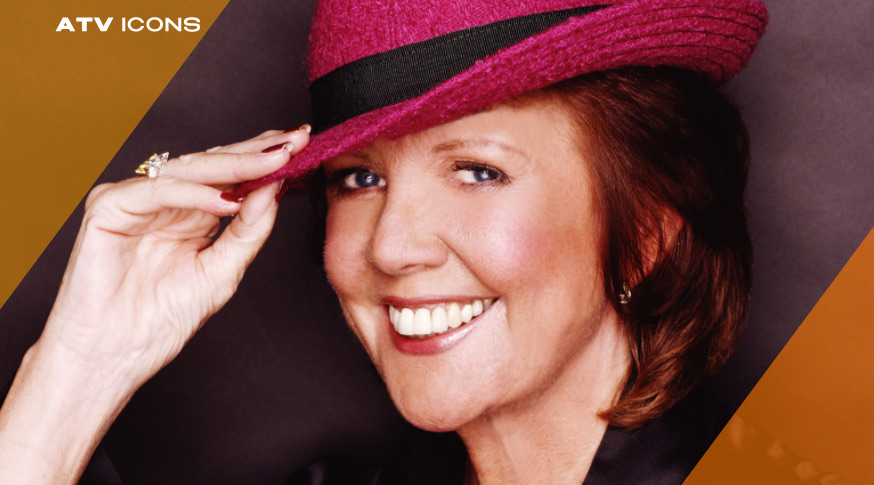
Cilla Live special / Living TV
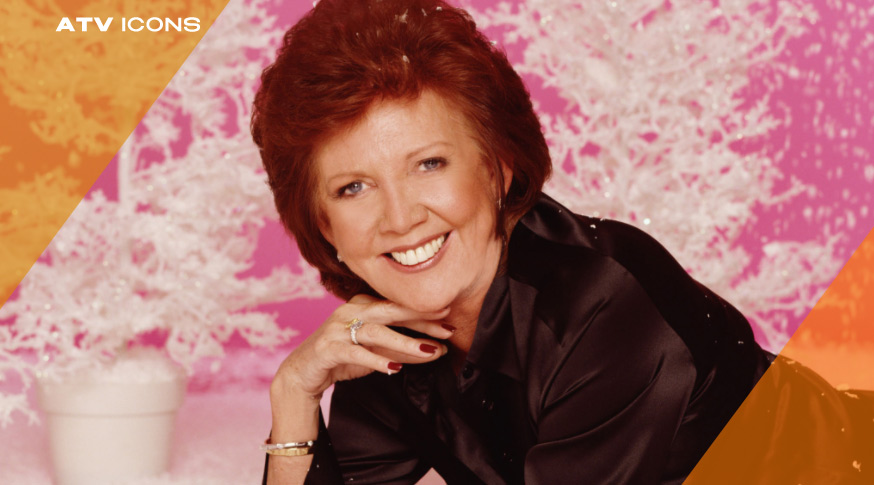
Black’s extraordinary life came to an end on 1 August 2015. While at her holiday home in Estepona, Spain, she suffered a stroke after a fall and passed away at the age of 72. News of her death shocked and saddened the public. In the days that followed, an outpouring of tributes flooded in from fans, fellow celebrities, and political leaders alike – all reflecting on how much “our Cilla” had meant to Britain. Her funeral was held in her native Liverpool, where hundreds of fans lined the streets to farewell a homegrown star as her cortege passed by. The funeral service itself was attended by a who’s-who of British entertainment.
Just days after her passing, a compilation album of her music reached #1 on the UK charts – her first number-one album, coming 50 years after she first topped the singles chart. In 2017, her legacy was immortalised with a bronze statue unveiled outside Liverpool’s current Cavern Club, showing Cilla in a triumphant pose as a young singer.
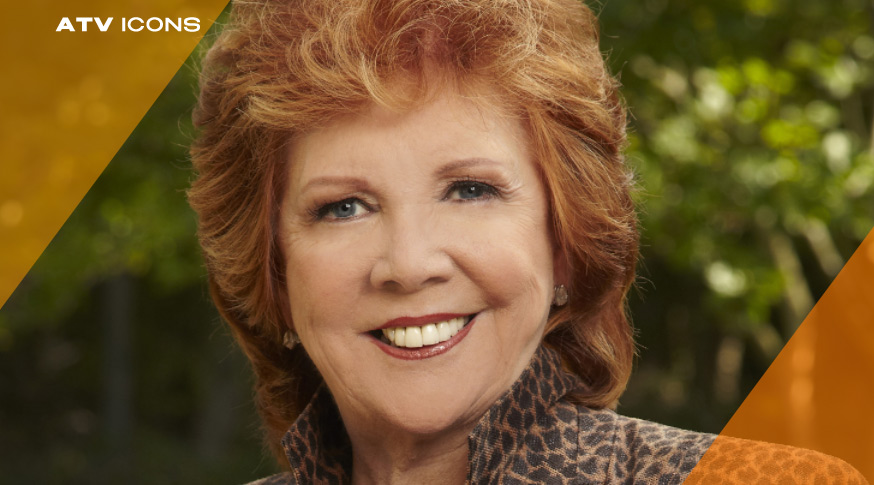
Cilla hosts ’50 Greatest TV Endings’ for Sky One / Sky




